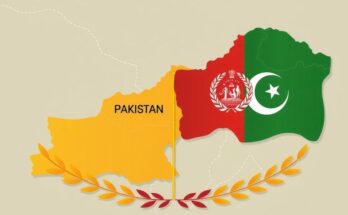The Trump administration has implemented cuts to humanitarian aid impacting Guyana, prompting government intervention discussions. Minister Hugh Todd is seeking partnerships with UN agencies to address funding shortfalls. USAID programs have been paused for review, but public health initiatives may soon resume to address critical health needs. The situation highlights the tension between U.S. foreign aid policies and local humanitarian efforts.
The Trump administration’s recent cuts to aid provided by the Bureau of Population, Refugees, and Migration (PRM) have severely impacted humanitarian programs in Guyana. In response, the government is considering state intervention to support United Nations humanitarian organizations such as the International Organization for Migration (IOM) and the United Nations High Commissioner for Refugees (UNHCR).
Minister of Foreign Affairs Hugh Todd informed Stabroek News that discussions with IOM leadership revealed significant budgetary constraints at the Guyana office caused by reduced U.S. federal spending. He emphasized the need for collaboration between IOM and the Guyanese government to prioritize and urgently address affected programs.
Reports indicate that various U.S.-funded programs across the country have been impacted, resulting in layoffs for key agency personnel. The IOM, which became a member state in December 2011, implements several projects in Guyana, focusing on areas such as diaspora engagement and migration management.
The U.S. Embassy confirmed that all USAID programs in Guyana have been paused for a comprehensive review following President Trump’s Executive Order on Foreign Aid Reevaluation. The Public Affairs Department stated this review aims to ensure foreign assistance aligns with U.S. foreign policy under the America First agenda, causing temporary cessation of programs and grants without approved waivers.
Recent reports indicate potential resumption of U.S. aid efforts related to public health, particularly in fighting diseases such as malaria and addressing severe malnutrition. Although a U.S. Secretary of State waiver allowed lifesaving efforts to continue, there remains confusion among organizations regarding which initiatives are included in the exemptions.
The Trump administration’s aid cuts have significant implications for humanitarian assistance in Guyana, prompting government steps to support vital UN operations. The ongoing pause of USAID programs underlines the challenges posed by these funding reviews. Critical health initiatives may soon resume, indicating a need for clarity on aid regulations to prevent unintended adverse effects on vulnerable populations. In summary, as the government seeks to find collaborative solutions with UN agencies, the situation remains fluid with possible positive developments regarding essential aid initiatives.
Original Source: www.stabroeknews.com




